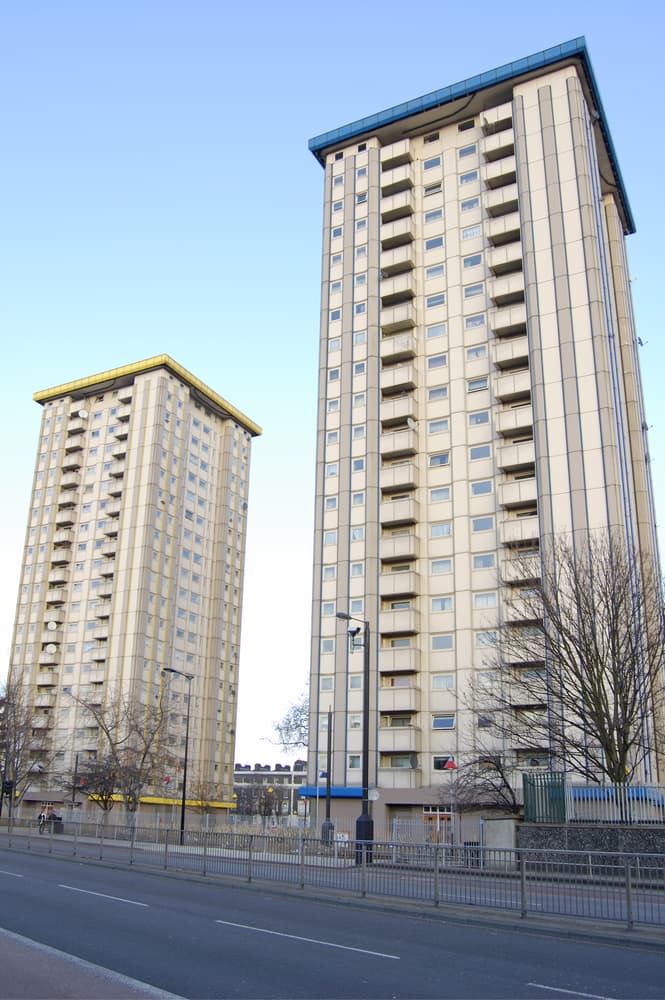WRAP has published a report looking to “identify and test measures” to help local authorities improve recycling, particularly on flatted properties within UK cities and urban areas.
Some of the findings of the work are that a “tailored” and “local” approach is one of the best ways to boost recycling.
To achieve its research objective, the resource charity collated data through five WRAP-funded case studies with local councils, designed to increase the “capture of recyclables from flatted properties.”
The pilots were conducted between March 2016 – October 2016, where the organisation introduced a number of “interventions” for the following:
- London Borough of Hackney
- Kirklees Council
- Liverpool City Council
- Portsmouth City Council
- Southampton City Council
Interventions
WRAP provided Kirklees council residents in Dewsbury, with an internal caddy for dry recycling, as well as some “new/different/extra” recycling bins.
Portsmouth Council received re-usable bag(s) for dry recycling and glass, recycling bins and “new” glass collection banks, which were disseminated accordingly.
Meanwhile, the London Brorough of Hackney, which covers households in Stoke Newington, Shacklewell/Haggerston, acquired single-use sacks, as well as some additional recycling bins.
All five councils were presented with communications to encourage recycling in the form of printed materials, stickers and “face-to-face engagement.”
The report said: “The pilots covered a range of flat block types and tenants and, in turn, there was a wide range of recycling barriers and motivations. For example, in Liverpool there was a strong skew to young professionals in private rented and relatively new flat blocks. They were motivated to recycle but lacked the infrastructure to do so.
“By contrast, in Southampton the flat stock was older, and the flat dwellers typically were social renters in lower social economic groups (i.e. D and E), and with lower levels of motivation to recycle.”
Results
The results from each pilot showed mixed variants in recycling, following the charity’s interventions.
Explaining this in more detail, the report read: “Even though significant increases in recycling were not seen, there have been some reported changes in residents’ behaviour which, over time, could lead to measurable increases in recycling collected.
“In the case of Kirklees, which provided a caddy for internal storage, crews observed a reduction in plastic carrier bags in the recyclables suggesting that this measure may have reduced contamination. Officers also noticed a general reduction in contamination levels.
Conclusion
The report outlined a number of propositions to “achieve success.” This included a “tailored” and “very local specific approach” ensuring all types of bins and containers are “conveniently located” in each block and are the most suitable models for each area. WRAP also highlighted that they should be “well-lit” and “perceived as safe and clean,” for residents to use.
The report added: “Related to this, the method of delivery of communication materials and kit (such as re-usable bags) and the location of communication materials (such as stickers and posters) needs to be well-thought out in order to have the greatest impact on recycling levels and the greatest benefit to residents.”
“Overall, taking into account the findings from the pilots and both the international study and literature review, it can be concluded that increasing recycling in dense urban areas is challenging and requires significant resource and/or legislative drivers.”
Differences
Reflecting the role of “local” approaches, the report noted that “WRAP’s previous research has established that commonalities do exist based on the nature of flat living (e.g. there is generally less internal space for bins; the location and condition of communal bin/recycling areas is critical; and there is an inherent challenge of monitoring recycling behaviours where a group of individuals all use a communal system). Nonetheless, there are also stark differences according to the characteristics of the tenants, the nature of the flat blocks, local management (e.g. concierge teams) and pre-existing recycling behaviours.”
Related links
The post WRAP finds ‘local’ flats recycling approach can help appeared first on letsrecycle.com.
Source: letsrecycle.com General




